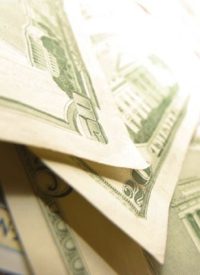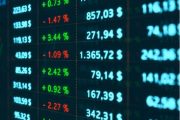
After strong criticism of the U.S. dollar in recent weeks from world leaders, the United Nations added more pressure with yet another scathing report calling for a new international reserve currency issued by the International Monetary Fund.
“A new global reserve system could be created, one that no longer relies on the United States dollar as the single major reserve currency,” said the UN World Economic and Social Survey for 2010. “The dollar has proved not to be a stable store of value, which is a requisite for a stable reserve currency.”
After news of the report hit international media wires, the dollar dropped relative to other fiat currencies. And according to an IMF announcement a few days later, the dollar’s share of world reserves dropped to a 10-year low.
The new UN report said that the IMF should be given the authority to print its own fiat currency, claiming that the new system “must not be based on a single currency or even multiple national currencies but instead, should permit the emission of international liquidity — such as [Special Drawing Rights] — to create a more stable global financial system.” SDRs are “assets” issued by the IMF with a value based on multiple currencies.
The new fiat money created at the international level could be used to fund projects world leaders deem useful, according to the report. For example: “Such emissions of international liquidity could also underpin the financing of investment in long-term sustainable development,” the report suggested. “Sustainable development” is often used to refer to stronger central planning, population reduction, more land in government hands, and other ideas repugnant to the U.S. Constitution.
“This year’s report looks at the prospects for post-crisis global development and concludes that a major rebalancing of the global economy is needed to make it sustainable,” director of development policy and analysis at the Department of Economic and Social Affairs Rob Vos told the media while introducing the report. “To that end, it argues for much more effective mechanisms of global economic governance, requiring a major overhaul of the existing ones.”
In September of last year, another UN body offered a similar analysis, calling for an end to free markets and dollar hegemony as well as the adoption of a new world reserve currency issued at the international level and stronger “global governance.”
“In the discussion about necessary reforms of the international monetary and financial system, the problem of the United States dollar serving as the main international reserve asset has received renewed attention,” said the report, published by the UN Conference on Trade and Development. The paper also suggested the use of SDRs as the international reserve currency.
Earlier in 2009, another UN panel also called for talks on setting up a new international monetary system and moving away from the dollar. Additionally, world leaders have been increasingly outspoken in calling for a new reserve currency — especially China, Russia, Brazil and other powerful nations.
In late June, as reported by The New American, French President Nicolas Sarkozy and Russian President Dmitry Medvedev openly discussed replacing the old global financial system with a new international monetary order and a world currency.
“We all need to think about the foundations for a new international financial system,” Sarkozy told an economic forum. “We’ve been based on the Bretton Woods institutions of 1945, when our American friends were the only superpower. My question is: Are we still in 1945? The answer here is, ‘no.’” He also called on world leaders to “think together about a new international currency system.”
The same agenda was pushed at the recent G20 summit, albeit not as blatantly. “The much-ballyhooed disagreements over fiscal policy obscured the much more important result of the Toronto summit: the ongoing G8/G20 push to transform the International Monetary Fund (IMF) into a global Federal Reserve System, with financial regulatory powers to create money ‘out of thin air,’ as the Fed does, without having to request replenishments from IMF member nations,” The New American’s senior editor William Jasper reported.
“As we have been warning in The New American for the past couple of years, the global elites driving the G8/G20 agenda have been aiming at creation of a ‘new economic order,’ and transforming the IMF into a global equivalent of the Federal Reserve as a central component of that new order,” he wrote. “Supplanting and replacing the dollar with an interim ‘basket’ of currencies and, ultimately, a global currency, is another component.”
Even American officials have let it slip that they wouldn’t mind seeing a global currency and the phasing out of the dollar‘s position. Last year, for example, tax-dodging U.S. Treasury Secretary Timothy Geithner sent waves through the media when he indicated his support for a world currency. He quickly back-peddled after the dollar dropped on international markets and the comments made headlines worldwide. But the damage was done.
The dollar has managed to maintain its status as the world reserve currency mainly because virtually all oil is traded in Federal Reserve Notes. Internationally, the dollar has been relatively more stable than other currencies too — so far. And America’s military might has certainly played some role. But the dollar’s privileged position may be coming to an end soon.
The Federal Reserve has already injected untold trillions into the economy throughout the economic crisis. And big banks and prominent analysts are warning of “monster” money printing ahead. All of that money-supply growth (inflation) represents devaluation of dollars already in circulation and theft against everyone holding Federal Reserve Notes including Americans, foreign governments, and central banks.
The dollar is in big trouble. The massive money printing is bad enough on its own, but if and when the world loses confidence in America’s paper money, the result will be a catastrophe of immense proportions — unless the problems are rectified, and soon.
The important question — at least long-term — now seems to be: What will replace Federal Reserve Notes? Hopefully, rather than the same fraudulent debt-money system at the global level, educated citizens who understand economics and monetary theory can turn this potential disaster into an opportunity for restoring sound money. The alternative — a global fiat currency scheme — will be immeasurably worse than the current system.



